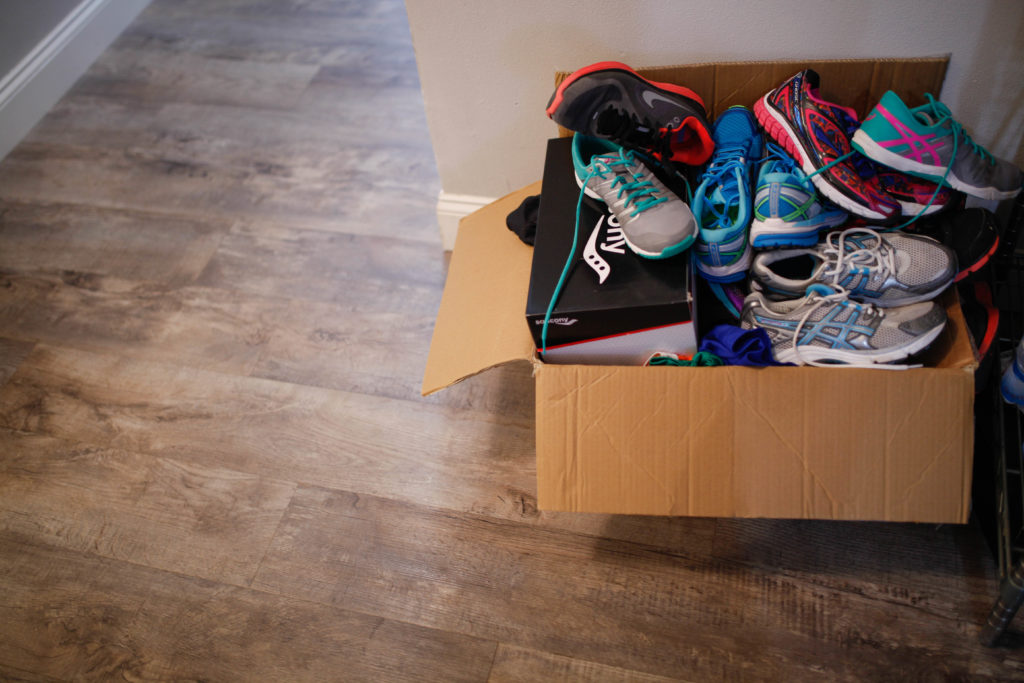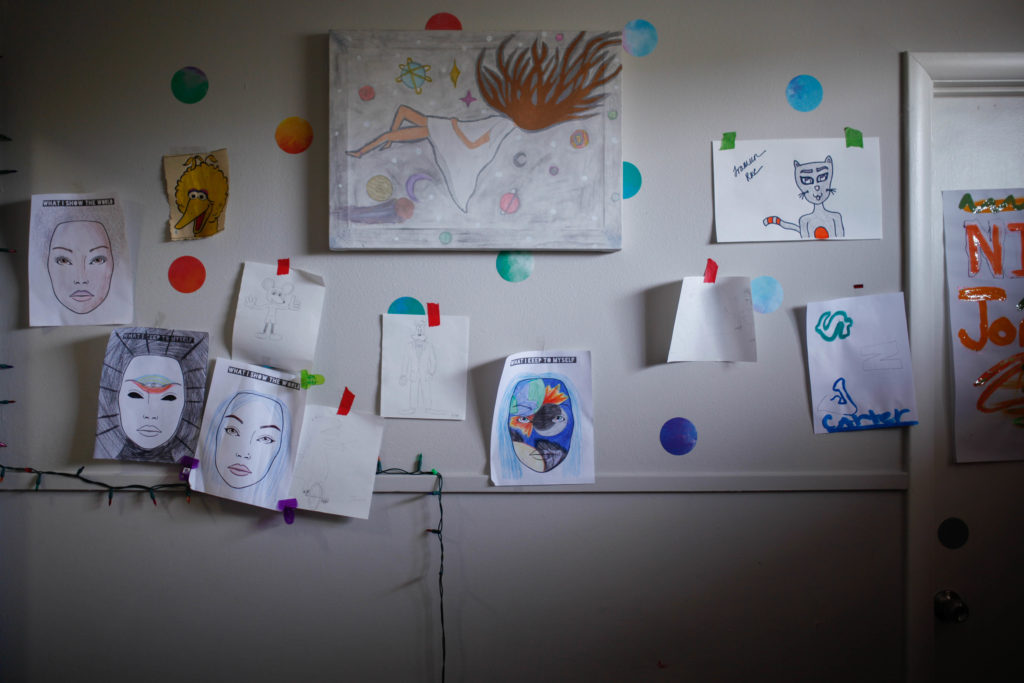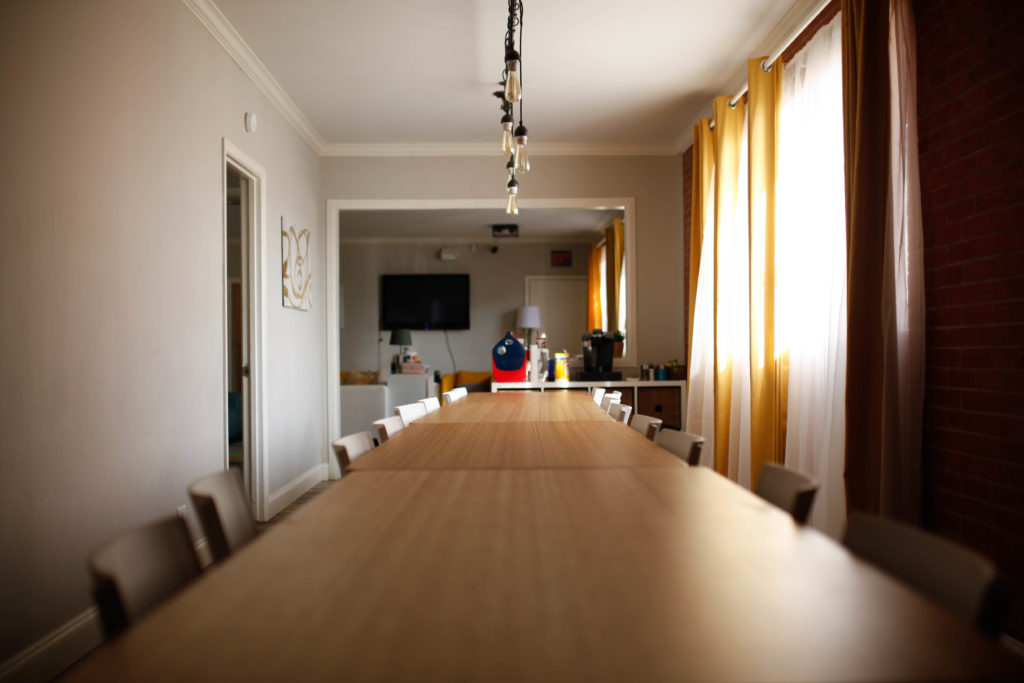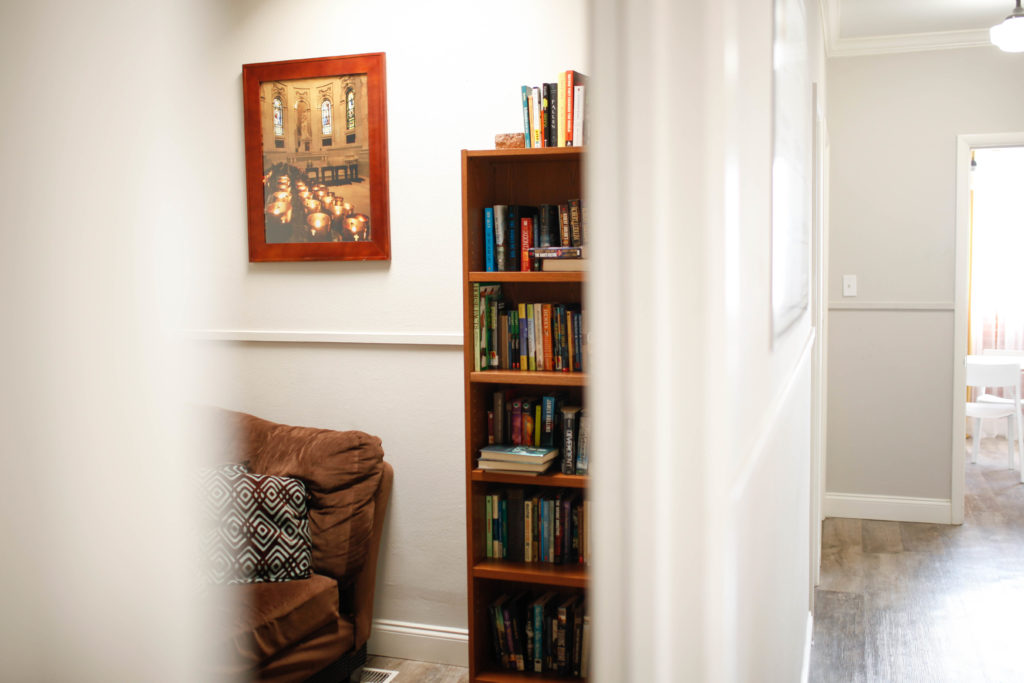Story by Taylor Ward | Photo by Corrie Coleman | Illustrations by Rewon Shimray
The Cove, local teen nurturing center, offers community support and a safe haven to the homeless and struggling youth of Waco
A common misconception is that homelessness is only experienced by adults and in one certain way. According to the Texas Education Agency, there are approximately 110,000 homeless teens and children enrolled in public schools every year. Sixteen thousand of those children are “unaccompanied,” as in not living in the physical custody of a parent or guardian.
The McKinney-Vento Act defines homelessness as “families and students temporarily without a home due to fire, living with a family doubled-up to financial hardship, a student not living with a parent or legal guardian, or living in a shelter, car, or unsuitable living space.”
This is the definition The Cove, a nurturing center for teens experiencing homelessness in Waco, uses in their work.

Kenneth McAdam, licensed master social worker and program manager, makes sure students are being provided for holistically — this includes making sure they have tutors, available meals, haircut appointments and connections with outside programs. He also coordinates volunteers and the inner workings of the program itself.
“My heart has always been for youth,” McAdam said. “I love spending time with youths and getting to see them grow.”
The Cove offers food, academic and emotional support via certified counselors and tutors, clothing, safety, shelter and access to healthcare.
At The Cove, they have two approaches to working with their students. The first is a strength-based approach that emphasizes self-determination and strengths. This approach allows the volunteers, interns, employees and faculty to help students see themselves as resourceful and resilient in the face of adversity. The second approach is trauma-informed care, which is rooted in an understanding of and responsiveness to the impact of trauma students have experienced. This creates opportunities for survivors to rebuild a sense of control and empowerment.

Jordyn Reel volunteers at The Cove every Monday from 6 to 8 p.m., and she wishes she could volunteer more.
“For me, when I get there, it’s usually about time for dinner,” Reel said. “I love this so much because we always have a table question while we eat, and each person takes a turn telling us their answer. I love hearing more about the kids and their dreams for their future and what they enjoy — then being able to connect with them on something that they talked about.”
Reel spends dinner time getting to know the students she works with. Afterward, she helps students with homework if they need.

“I read with some of the kids,” Reel said. “Then sometimes it just looks like us hanging out, listening to them, playing a board game or just being able to love on them in the best way I can for those few hours.”
There are 280 homeless youths enrolled in Waco ISD high schools. Thirty-two percent of these are unaccompanied, which means they are not in the physical custody of a parent or guardian.
According to Waco ISD Homeless Outreach Services’ 2015 information, 37 percent of youth in the Waco High School district, 31 percent of youth in the University school district and 29 percent of youth in the Brazos school district are unaccompanied.
“The growing problem of youth who experience homelessness deserves support from government, municipal and community agencies,” said Rosemary Townsend, board chair and co-founder of The Cove.
Townsend was brought in when other co-founder Cheryl Pooler, licensed clinical social worker and lecturer in the Diana R. Garland School of Social Work at Baylor, reached out and described her dream for a safe space for homeless youth. Whether tending to her board duties, supervising committees or overseeing volunteers and staff, Townsend still finds time to volunteer with the students on Thursdays.

Nonprofits are difficult to keep afloat because they don’t have a steady source of income.
This forces them to continuously seek ways to raise the funds with the goal of long-term sustainability. According to Townsend, however, having the necessary resources doesn’t always guarantee a successful venture.
“It doesn’t matter how great the resources are if you haven’t gained the trust of those you serve,” Townsend said. “The students are our most important partners.”
The Cove serves students from 14 to 19 years old — all of whom have an increased likelihood of sexual and emotional abuse, human trafficking, depression, suicide and substance abuse. According to the National Association for the Education of Homeless Children and Youth, each year in the U.S., 1.6 to 1.7 million youths experience homelessness. Twenty to 40 percent were abused sexually in their homes, 40 to 60 percent were abused physically, two out of three students report at least one parent who abuses drugs or alcohol and 20 to 40 percent have been thrown out of their homes because of sexual orientation or pregnancy.
When The Cove first opened on October 3, 2016, it served 61 students during the 2016-2017 school year — 37 of which were unaccompanied. The Cove has since seen eight students graduate from high school, and nearly 88 percent of those graduates were accepted to college or found employment.
“They are so capable and resilient,” Townsend said. “And they deserve our support.”
Townsend explained that while The Cove is a relatively new organization, their early results and graduation rates validate the importance of the program in providing a safe space for students to acquire the tools that will help them conduct a more successful and productive life.
“Cove Scholars want to be contributing members of our community’s future. It is important to give them that opportunity,” Townsend said.
A letter from a Cove graduate —
My name is Catherine Price. I am eighteen and I’m homeless/unaccompanied youth. My past has a lot to do with how I experience the present. Even though I’ve been through hell, I have exceeded other people’s expectations. Normally people expect me to give up, but it’s only pushed me to try harder. I haven’t given up.
When my dad got out of the Army, we experienced a lot of physical and verbal abuse. I wanted structure, so it went from “I’m going nowhere” to “I’m joining ROTC.” When he was in the Army, we never saw my dad. I was hoping that being in the ROTC would make me never see them. The way people explained ROTC to me was “family.” That’s what I wanted because I didn’t feel like I had one. We had a year and then my parents got divorced.
After the divorce, it went from my father being the abusive one to my mother being verbally abusive. At the time, we were living with her mother. She met a man and he seemed very nice. He bought us what we wanted. He wouldn’t let my mom ground us. Then we moved to another city. Shortly after that, we got kicked out of our apartment and moved into a trailer house that wasn’t too far from this man’s house. He would come over all the time. He became very abusive to my mother. Very in the kids’ faces. At one point in the relationship, he threatened to slap me. Shortly after that, I moved back to Waco with my grandma so I could continue my education. A month before school started, CPS got into our lives. My mother was drug tested and they found drugs in her system. CPS told my mother to move back in with my grandmother if she wanted to keep her kids. So she moved to Waco with us.
After that, I turned 18 and I was getting threats from my mother saying “You’re almost 18. I can kick you out.” She would get upset when I wasn’t doing everything she thought needed to be done around the house.
That’s when I found out about the Cove. I had talked with my counselor and told her about my mom. She introduced me to someone who told me about the Cove and I thought “Why not?”.
The first time I came to the Cove, I felt terrified. It was a new place. I was scared. But everybody was so nice, and it was hard to be afraid after that.
I turned 18, and I left and moved in with some friends. Since then, my grades have improved tenfold, and I’ve decided my career for the rest of my life (National Guard and then active duty).
The Cove has helped a lot with support in all stages, whether it be mental and needing someone to talk to and swing your ideas by, as well as a cool place to hang out after school. I’m getting encouraged to do my homework and graduate. I’m not used to that. If it wasn’t for The Cove, I probably would have already dropped out. The Cove has been telling me “You can do it.” Encouragement is exactly what I needed.
I want to go active duty military. I want a family. I want to be better than my mother. I want to be open and accepting. I want to be an optimistic person. If there’s a will, and I know this for a fact, there’s a way.
And that’s my story.

